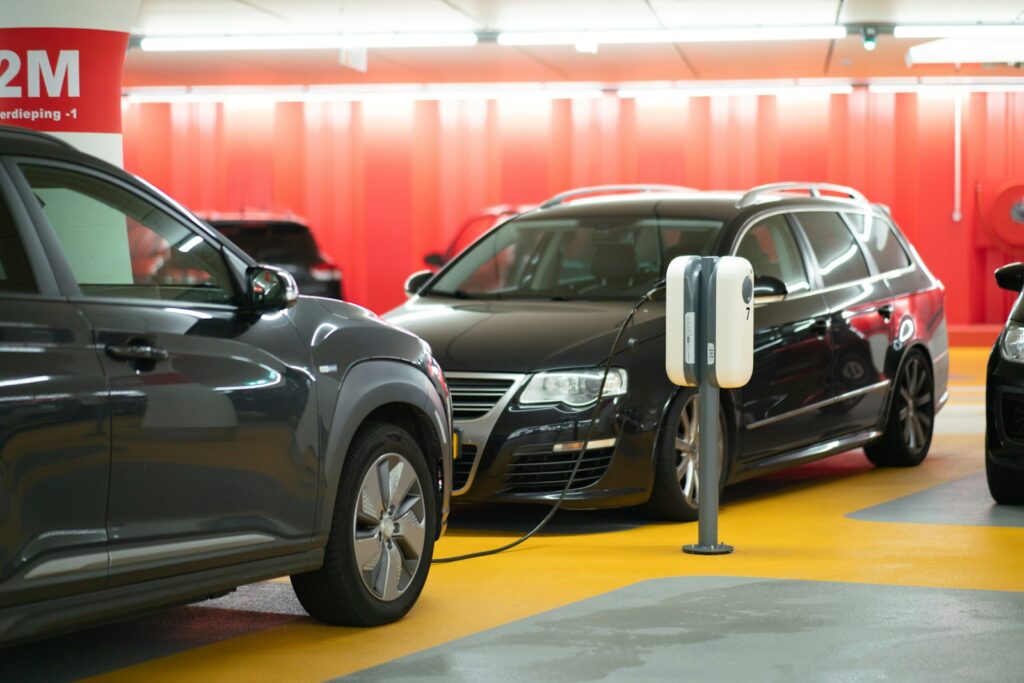When it comes to choosing between an electric or gas truck, the EV truck vs gas truck cost is one of the biggest deciding factors. It’s not just the sticker price but the total cost of ownership over time.
Let’s break down what really adds up (or saves you money) across 5 to 10 years.
Breaking Down the EV vs Gas Truck Cost
When comparing the cost of an EV truck vs a gas truck, it’s not just about what you pay upfront. Here are five major factors that shape the total cost of ownership over time:
1. Purchase Price & Incentives: EVs Still Cost More
Most EV trucks, like the Ford F-150 Lightning, start higher than their gas counterparts. But federal and state incentives can level the playing field.
The 2025 U.S. Clean Vehicle Tax Credit offers up to $7,500 tax incentives on qualifying electric trucks, which can bring EVs surprisingly close to gas models in price.
Your EV truck ROI becomes clearer when those incentives are paired with fuel and maintenance savings. Just keep in mind that not all trims or buyers qualify, so check your eligibility.
2. Fueling Costs: Charging Beats the Pump Long-Term
Let’s talk about charging vs refueling cost. Electric trucks typically cost 40–60% less per mile to “fuel” than gas trucks, especially when charged at home. According to the U.S. Department of Energy, electricity prices are far more stable than gas, and can even drop with solar or off-peak charging.
Truck fuel costs over time can make or break your budget. If you’re driving over 12,000 miles a year, EV savings really start to stack up.
3. Maintenance: EVs Have the Edge in Simplicity and Cost
Here’s where EVs shine: fewer moving parts. No oil changes. No spark plugs. No transmission fluid. Regenerative braking even extends brake life. Compared to the typical ICE truck service schedule, EV truck maintenance costs can be 30–50% lower.
Want a deeper dive into long-term battery care for both truck types? Don’t miss our guide on Battery Care: Extend EV & ICE Battery Life.
4. Depreciation & Resale: Still a Moving Target
This one’s tricky. The depreciation of electric trucks can vary more than gas models. Some early EVs took a hit, but newer entries (like Rivian or Tesla Cybertruck) are showing stronger resale value.
Resale value for EV pickups is improving, especially in areas with strong charging infrastructure and EV incentives. Gas trucks remain predictable in resale, but rising gas prices and emission regulations could shift that advantage.
5. Battery Replacement: Real Worry or Overblown?
One of the biggest concerns around EVs is the EV battery replacement cost. But the good news, most truck batteries are designed to last 100,000–200,000 miles, with warranties covering at least 8 years.
The actual risk of needing a full battery replacement within 10 years is low, and prices are dropping annually. Still, it’s worth factoring in, especially for high-mileage or heavy-towing drivers.
The 10-Year Math: Who Wins?
Let’s say you’re comparing a Ford Lightning vs gas F-150 over 100,000 miles:
| Category | EV Truck | Gas Truck |
|---|---|---|
| Purchase Price (after incentives) | ~$50,000 | ~$47,000 |
| Fuel Cost (100K miles) | ~$6,000 | ~$14,000 |
| Maintenance | ~$3,000 | ~$6,000 |
| Resale Value (est.) | ~$25,000 | ~$20,000 |
| Total Ownership Cost | ~$34,000 | ~$47,000 |
EV wins if you can maximize incentives and charging savings. But if you live in a remote area, tow often, or rack up fewer miles, a gas truck may still offer a better short-term value.
The Final Verdict
If you’re hauling cross-country or logging fleet miles, the total cost of ownership EV vs gas leans clearly in favor of electric. But lifestyle, charging access, and upfront cost flexibility matter too.
Before you choose, calculate your own TCO based on usage, incentives, and maintenance habits. The winner might surprise you.



